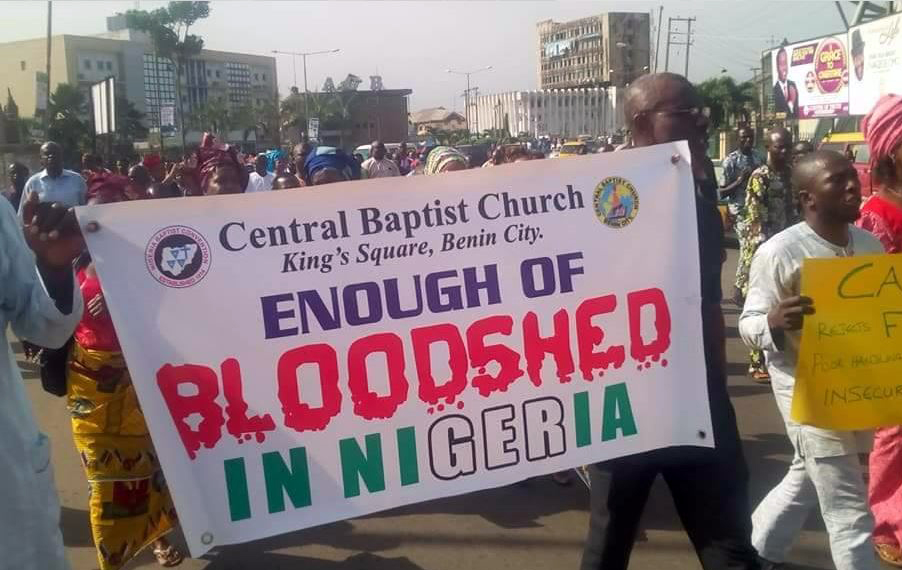Human Rights watchdog International Christian Concern (ICC) has unveiled its annual list of the top persecutors of Christians around the world.
Presented at a November 16 press conference in Washington, DC, the ICC list names the worst individual, entity, and country achieving the dubious honor of being either the top persecutors or most dangerous place to be a Christian for the year 2021.
North Korean leader Kim Jong-Un again claimed the infamous position as top individual persecutor, surpassing President Recep Tayyip Erdoğan of Turkey, Prime Minister Narendra Modi of India and Xi Jinping, the leader of the People’s Republic of China.
Kim has kept up a family tradition.
Since the Kim family dynasty began at the end of the Second World War, it is estimated that millions of North Korean Christians have either been imprisoned or murdered for their faith. After rising to power in 2012 at the death of his father Kim Jong-il, the younger Kim has continued the persecution.
“Christians are in fact political prisoners,” Jinhye Ho testified at the ICC event of her experience in North Korea. Ho stated that “being a Christian would determine which reeducation camp that they would be assigned to”. Current estimates place the number of Christians in the country at around 400,000 people.
Religious Freedom advocates are concerned that if North Korea continues its nuclear weapons program, religious freedom concerns will not be a major focus of the U.S. Government. However, American officials should continue forward in these efforts.
Afghanistan’s Taliban regime was named as worst entity persecuting Christians. They surpassed problematic groups on the rise including the Allied Democratic Forces insurgency in the Democratic Republic of the Congo and perennial attackers Boko Haram in Nigeria, the Grey Wolves of Turkey and Al-Shabaab in Somalia.
The Taliban has attempted to improve its image of the past two decades as one that is harsh and repressive. The Islamist “student movement” horribly treated Afghans before being driven from power by a U.S.-led coalition in 2001. The Taliban’s return to power after a chaotic U.S. evacuation earlier this summer bodes poorly for Afghan Christians.
This time Taliban rulers have new tools to persecute the Christian community, such as improved records captured from the deposed Afghan republic that potentially exposes the identity of believers. Before the Taliban regained power there were an estimated 10,000 Christians in Afghanistan. Almost all of these new Christian brothers and sisters are converts from Islam, a crime in Afghanistan punishable by death. It remains unknown how many left the country with U.S. military forces, but those who remain are under threat.
For nearly two decades jihadists from both Boko Haram and the Islamic State West African Province (ISWAP) have battled the Government of Nigeria. Islamist militant groups are present in neighboring northern Cameroon, Niger and Chad, but the ICC ranked the West African country of Nigeria, where Boko Haram is active in the northeast and Fulani tribesmen stage attacks against Christians in the country’s middle belt, as the worst in which to be a Christian.
It is widely known that the Nigerian military and police have not engaged insurgents unless attacked themselves by the militants. This means that they were — and still are — willing to let Christians suffer for their faith. The secular western narrative of Fulani attacks as a mere “Farmer-Herder conflict” is itself a charade. Whatever the reason, more than 50,000 Christians have perished for their faith across the past two decades and hand wringing has been the preferred response to atrocities.
Western Christians and their churches have a duty to lobby the U.S. Government to raise awareness around the plight of vulnerable Christians in these places. The Apostle Paul calls for us to show care and concern for others in the Church. These are some issues that could easily be starting points.






Comment by David on November 18, 2021 at 7:06 am
Unfortunately, the worst places for religious persecution are often those where the US has little or no influence. We may feel sorry for what goes on, but there is not much more to be done.
Comment by Jeff on November 18, 2021 at 8:35 am
David, we had a ton of influence in Taliban Afghanistan before “Brandon” threw it all away to appease the left.
The blood of the Christian martyrs in Afghanistan is on the hands of the democrat left.
Comment by David on November 18, 2021 at 1:56 pm
Jeff, you seem to forget that it was the Trump administration that signed an agreement with the Taliban to withdraw US forces nearly a year before Biden was president. How many Afghans did Trump bring to the US for their safety?
Comment by Jeff on November 18, 2021 at 2:10 pm
I didn’t forget anything, David.
Trump’s withdrawal would not have removed ALL troops, would not have removed air and logistics support for the Afghan army, certainly would not have shut down Bagram before ALL Americans and ALL in-country allies were out. Furthermore, Trump’s withdrawal was predicated on certain behaviors of the Taliban that did not occur. Trump would not have allowed withdrawal to proceed.
No, you and the rest of the democrat left own this horrific debacle, David. May GOD have mercy on your reckless, jaded souls.
Comment by David on November 18, 2021 at 3:17 pm
“The signing of the Doha agreement had a really pernicious effect on the government of Afghanistan and on its military – psychologically more than anything else, but we set a date – certain for when we were going to leave and when they could expect all assistance to end,” Gen. McKenzie said.
“He was referring to a February 29, 2020, agreement that the Trump administration signed with the Taliban in Doha, Qatar, in which the US promised to fully withdraw its troops by May 2021 and the Taliban committed to several conditions, including stopping attacks on US and coalition forces.”
Jeff, your contention that the agreement allowed US forces to remain is totally false.
Comment by Jeff on November 18, 2021 at 3:22 pm
Per YOUR OWN quote of the terms, the Doha agreement was, de facto, dead, as the Taliban had already violated its terms.